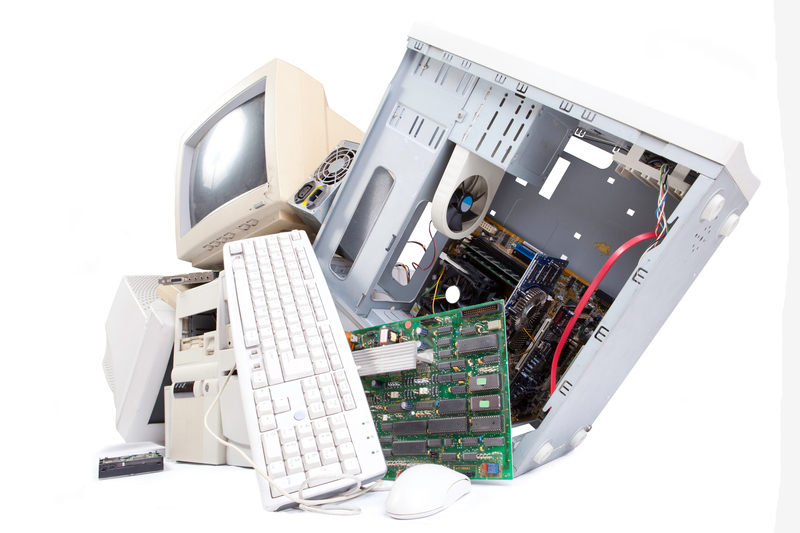Nature's Ally: Environmental Benefits of Recycling E-Waste
In the fast-paced era of technological advancement, electronic waste, or e-waste, has become one of the most significant environmental challenges. With the ever-shortening life cycles of electronic devices, our reliance on these gadgets is creating an enormous waste problem. However, nature has a powerful ally in combating this issue--recycling e-waste. In this article, we explore how recycling e-waste benefits the environment and why it is crucial for a sustainable future.
Understanding E-Waste
E-waste refers to discarded electronic appliances such as computers, TVs, smartphones, and more. These devices contain various hazardous materials like heavy metals, which can leach into the environment if not properly managed. By understanding the composition and impact of e-waste, we gain insight into why recycling these items is so important.
Components of E-Waste
- Metals: E-waste is rich in valuable metals such as gold, silver, copper, and platinum. Recycling helps recover these metals and reduces the need for mining, which can be environmentally destructive.
- Plastics: Plastics used in electronic devices contribute to pollution when improperly disposed of. Recycling minimizes the demand for new plastic production, saving energy and reducing greenhouse gas emissions.
- Hazardous Materials: Many electronics contain dangerous substances like lead, mercury, and cadmium. Safe recycling processes prevent these toxic materials from contaminating soil and water.

The Environmental Benefits of Recycling E-Waste
Recycling e-waste offers a multitude of environmental benefits, which play a vital role in conserving resources, reducing pollution, and promoting sustainability. Let's examine the advantages in detail:
Resource Conservation
One of the primary benefits of e-waste recycling is the conservation of natural resources. By reclaiming valuable materials from obsolete electronics, recycling reduces the need for new raw material extraction. This conserves precious metals, limits habitat destruction, and reduces the energy required for mining activities.
Reduction of Pollution
When e-waste is improperly disposed of in landfills, hazardous chemicals seep into the soil and water, causing pollution. Recycling e-waste through certified facilities ensures these toxic materials are safely handled, minimizing the risk to the environment and human health.
- Air Pollution: Burning e-waste releases harmful pollutants into the air. Recycling helps prevent air pollution by safely processing electronic components.
- Water Pollution: Contaminants from e-waste can leach into groundwater. Effective recycling practices ensure safe disposal, protecting water sources.
Energy Savings
The energy required to recycle electronic materials is significantly lower than the energy needed to extract and process new raw materials. Through recycling, we achieve substantial energy savings, reducing the carbon footprint associated with electronic manufacturing. This energy efficiency contributes to climate change mitigation efforts.
The Importance of Responsible E-Waste Recycling
Supporting Circular Economy
Recycling e-waste is a cornerstone of the circular economy--a system that promotes keeping resources in use through sustainable loops. By recycling electronics, we support the longevity of materials, encouraging repairs, refurbishments, and reuse, thus extending product life cycles.
Creating Green Jobs
The e-waste recycling industry generates employment opportunities in various sectors, from collection and transportation to processing and resale. These green jobs contribute to economic development while promoting eco-friendly practices.
Challenges in E-Waste Recycling
Despite its benefits, recycling e-waste faces several challenges. Addressing these issues is crucial to maximizing the environmental impact of recycling initiatives:
Lack of Awareness and Infrastructure
Many individuals are unaware of the environmental impact of e-waste, leading to improper disposal methods. Developing comprehensive infrastructure and increasing public awareness are key steps in enhancing recycling rates.
- Education: Informative campaigns can educate the public about e-waste hazards and the importance of recycling.
- Access: Establishing convenient e-waste collection points can encourage proper disposal.
Exportation and Informal Processing
In some cases, e-waste is exported to countries with limited recycling regulations where informal processing occurs. This can lead to environmental and human health hazards. International collaboration and enforcement of regulations are essential to curtail this practice.

Steps to Encourage E-Waste Recycling
Promoting effective e-waste recycling requires coordinated efforts from various stakeholders:
- Government Initiatives: Implementing policies and regulations that mandate responsible recycling and proper disposal of electronic waste.
- Industry Responsibility: Encouraging manufacturers to adopt sustainable practices, such as designing products for easy recycling and supporting take-back programs.
- Consumer Participation: Encouraging individuals to participate in recycling programs and make informed choices when purchasing electronics.
Conclusion
The environmental benefits of recycling e-waste make it a critical ally in preserving nature and promoting sustainability. By understanding the importance of recycling electronic waste, we contribute to resource conservation, pollution reduction, and climate change mitigation. Through collaboration and innovation, we can create a sustainable future where technology and nature coexist harmoniously.
Recycling e-waste is more than just a solution; it is a shared responsibility. Let's take tangible steps toward a cleaner and greener planet by being mindful of how we dispose of our electronic devices.